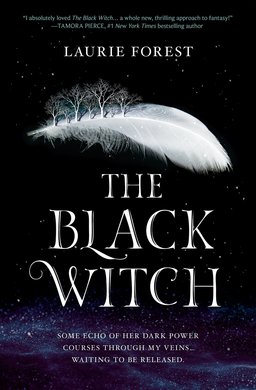 Finishing up your manuscript for a YA novel? Congratulations! You’re almost ready to become a bona fide published author. The final step: evading the pitchfork-wielding mob!
Finishing up your manuscript for a YA novel? Congratulations! You’re almost ready to become a bona fide published author. The final step: evading the pitchfork-wielding mob!
The Black Witch, a debut young-adult fantasy novel by Laurie Forest, was still seven weeks from its May 1 publication date, but positive buzz was already building, with early reviews calling it “an intoxicating tale of rebellion and star-crossed romance,” “a massive page-turner that leaves readers longing for more,” and “an uncompromising condemnation of prejudice and injustice.”
The hype train was derailed in mid-March, however, by Shauna Sinyard, a bookstore employee and blogger who writes primarily about YA and had a different take: “The Black Witch is the most dangerous, offensive book I have ever read,” she wrote in a nearly 9,000-word review that blasted the novel as an end-to-end mess of unadulterated bigotry…
In a tweet that would be retweeted nearly 500 times, Sinyard asked people to spread the word about The Black Witch by sharing her review — a clarion call for YA Twitter, which regularly identifies and denounces books for being problematic (an all-purpose umbrella term for describing texts that engage improperly with race, gender, sexual orientation, disability, and other marginalizations)…
Based almost solely on Sinyard’s opinion, the novel became the object of sustained, aggressive opposition in the weeks leading up its release. Its publisher, Harlequin Teen, was bombarded with angry emails demanding they pull the book. The Black Witch’s Goodreads rating dropped to an abysmal 1.71 thanks to a mass coordinated campaign of one-star reviews, mostly from people who admitted to not having read it…
Positive buzz all but died off, as community members began confronting The Black Witch’s supporters, demanding to know why they insisted on reading a racist book. When Kirkus gave the novel a glowing starred review, dozens of commenters demanded a retraction…
Truly, social media has improved our lives! Writers haven’t had it this good since 1692.
The takeaway buried at the bottom of the article is that these campaigns don’t appear to have a negative effect on sales and, if anything, only help. Critics like Sinyard and her gang are extremely siloed. An estimated 70 percent of YA books are bought by people over the age of 18, and yet only 16 percent of American adults are on Twitter. The majority of book buyers are deaf to the screeching.
Which isn’t to say a small group of people can’t do real damage. Last year I did some back-of-the-envelope arithmetic and calculated that, at most, 0.04 percent of active Twitter users were responsible for the #HasJustineLanded debacle. That fact is poor consolation for Sacco, whose life’s course was irrevocably altered (though not for the worse) after scribbling a single tasteless tweet.